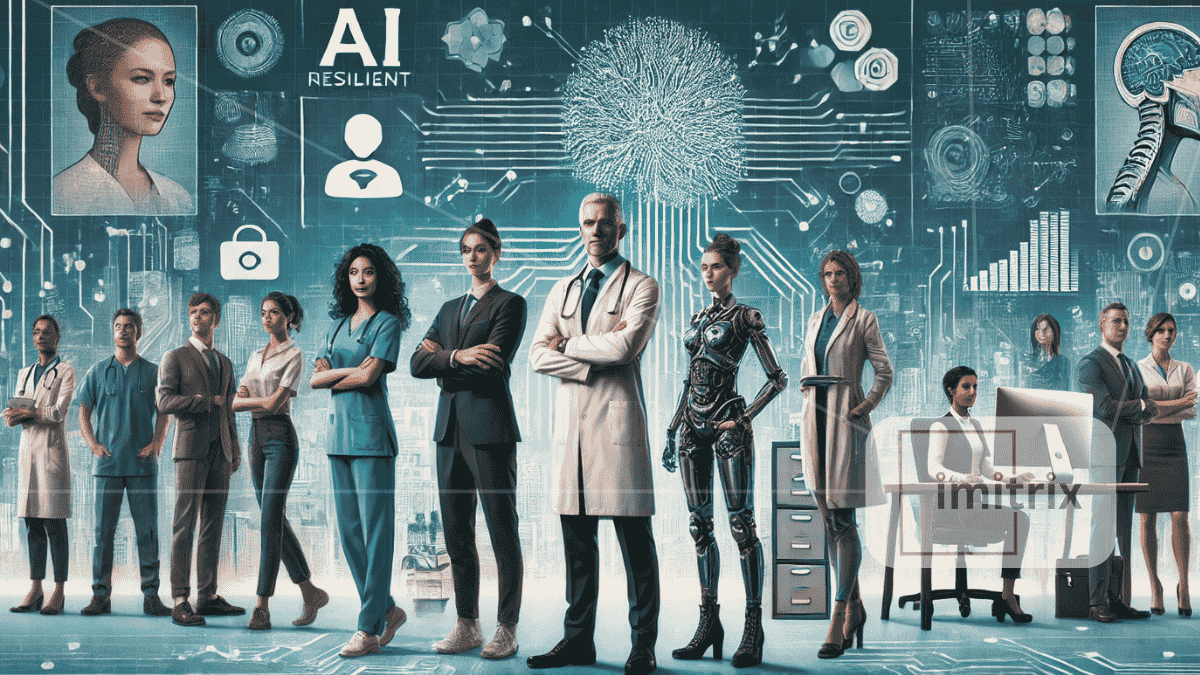Artificial intelligence is no longer a futuristic concept—it’s here, shaping industries, streamlining processes, and changing how work gets done. As automation accelerates, it’s clear that not all jobs face equal risk. Some roles are more exposed, especially those based on routine or predictable tasks. Others show strong resistance. These are what we call AI-resilient careers—jobs that are difficult to automate due to the unique human skills they require.
So what exactly makes a career resilient in the face of artificial intelligence? There are specific qualities that stand out across industries. Understanding these traits can help workers make smarter career decisions in a world that’s being transformed by algorithms.
1. High Emotional Intelligence and Human Interaction
Jobs that rely on empathy, active listening, and emotional nuance are less likely to be automated. AI may analyze sentiment or simulate polite conversation, but it doesn’t feel. It can’t read the subtle cues in a therapy session, a parent-teacher conference, or a medical consultation.
AI-resilient careers in this space include roles like nurses, counselors, social workers, and primary educators. These professions require trust-building and a human presence that goes far beyond transactional interactions. Even in business, leadership and people management demand real-time emotional awareness that AI lacks.
2. Creativity That Breaks the Mold
While AI can remix existing content, true originality still belongs to people. Artists, designers, screenwriters, strategists, and entrepreneurs rely on intuition, cultural context, and risk-taking. Their work isn’t just about combining ideas—it’s about creating things that feel new and resonate on a human level.
AI-resilient careers often involve pushing boundaries, experimenting, and responding to unpredictable trends. Machines can support these efforts, but they can’t invent meaning or understand why something matters socially or emotionally.
3. Problem-Solving in Ambiguous Situations
Automation works best with clear rules and outcomes. Many jobs, however, involve complex decisions in uncertain environments. Think architects navigating conflicting regulations, or operations managers adjusting to supply chain disruptions. These are not plug-and-play problems.
Professionals in AI-resilient careers often work without a script. They assess trade-offs, weigh ethical implications, and adapt quickly when new information arises. In fields like urban planning, crisis response, or business strategy, human judgment remains irreplaceable.
4. Physical Dexterity and On-Site Presence
Despite progress in robotics, AI still struggles with hands-on, real-world tasks that require flexibility and tactile skill. Electricians, plumbers, mechanics, and chefs deal with messy, unpredictable environments. No two repair jobs are exactly the same. Each one demands a mix of experience, physical awareness, and manual precision.
These roles represent a crucial segment of AI-resilient careers. Even if some tools become automated, the core work still relies on human adaptability and spatial understanding. These careers also benefit from a layer of trust and accountability that people expect from in-person service work.
5. Ethics, Oversight, and Social Responsibility
The more powerful AI becomes, the more oversight it needs. Who decides what’s fair? How do we avoid bias in algorithms? What happens when AI makes a harmful decision? These questions demand human intervention—people who understand law, policy, and ethics.
Jobs in this category include AI policy analysts, cybersecurity experts, compliance officers, and ethicists. These roles are part of the growing ecosystem of AI-resilient careers that focus on guiding and governing technology, rather than being replaced by it.
They also require critical thinking and accountability. AI can detect anomalies, but only humans can decide what action is just or socially responsible.
6. Cross-Functional Thinking and Versatility
AI is narrow by design—it performs best in clearly defined tasks. Humans, on the other hand, can connect dots across different domains. Someone who understands both technology and human behavior can identify needs that others miss.
This ability is essential in roles like product management, consulting, and interdisciplinary research. AI-resilient careers thrive on the ability to combine soft skills, technical literacy, and strategic thinking.
The future will reward generalists with deep learning agility. The ability to shift between disciplines, communicate across teams, and adapt quickly gives humans a long-term edge.
7. Continuous Learning and Tool Adaptation
Finally, adaptability itself is one of the most valuable traits in the AI era. People who stay curious, learn new tools, and grow their skillsets will remain relevant, even as specific technologies evolve.
AI-resilient careers aren’t about resisting change—they’re about leveraging it. Workers who integrate AI into their workflows, rather than compete with it, increase their productivity and relevance. This applies across sectors, from digital marketing to finance to healthcare.
Learning how to think critically, solve novel problems, and use AI as a partner—not a threat—is the mindset that will define the workforce of the future.
Conclusion: The Future Belongs to the Human Advantage
Automation is accelerating, but so is the demand for uniquely human skills. AI-resilient careers are those grounded in empathy, creativity, judgment, hands-on expertise, and ethical oversight. These roles demand qualities that machines don’t possess—and likely won’t for a long time.
Rather than fearing AI, workers should focus on the traits that give them an edge. The goal isn’t to out-compute a machine; it’s to do what only humans can: connect, imagine, decide, and adapt.
In short, the future of work isn’t about resisting AI. It’s about choosing roles that AI complements—not replaces.

